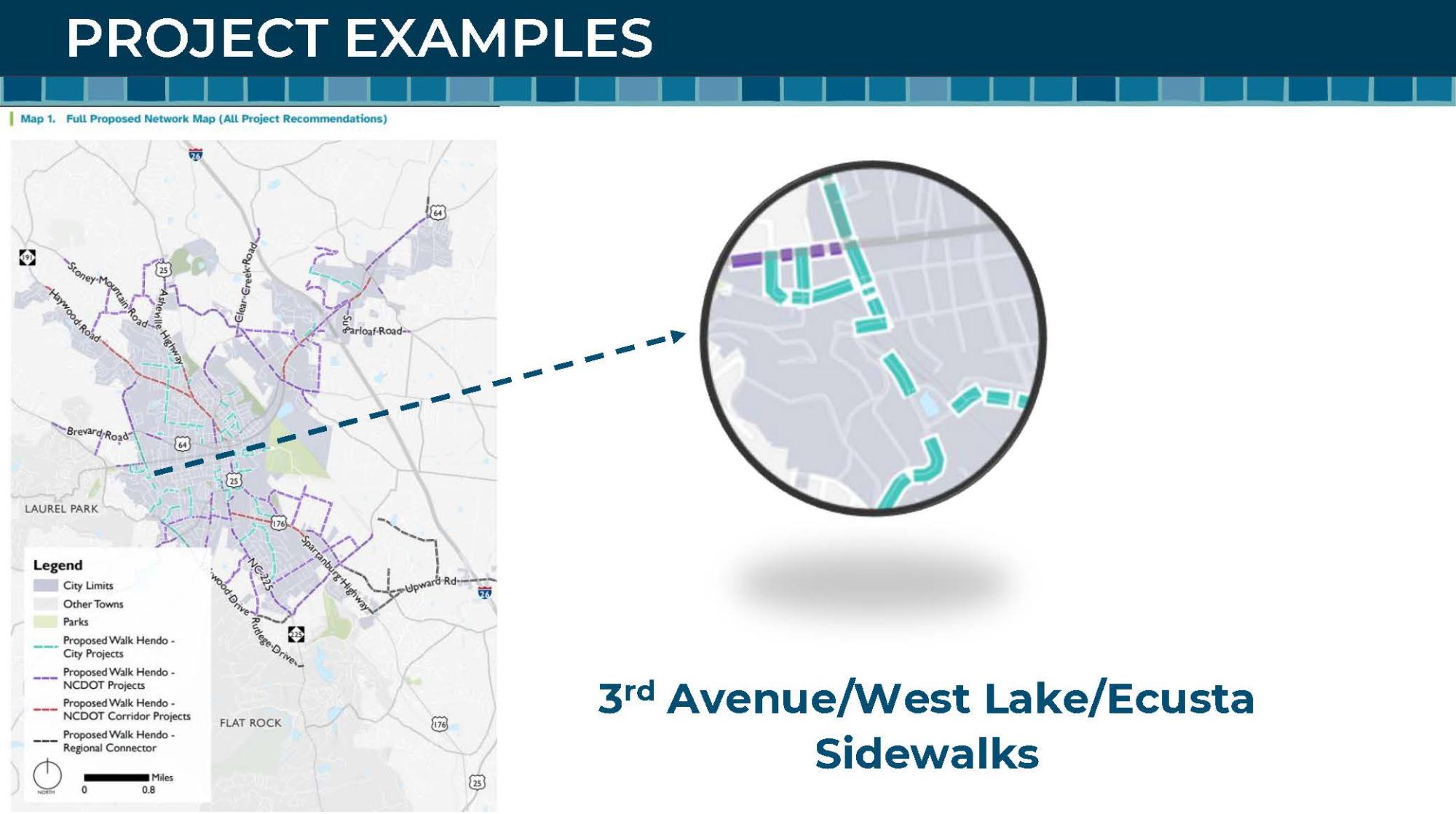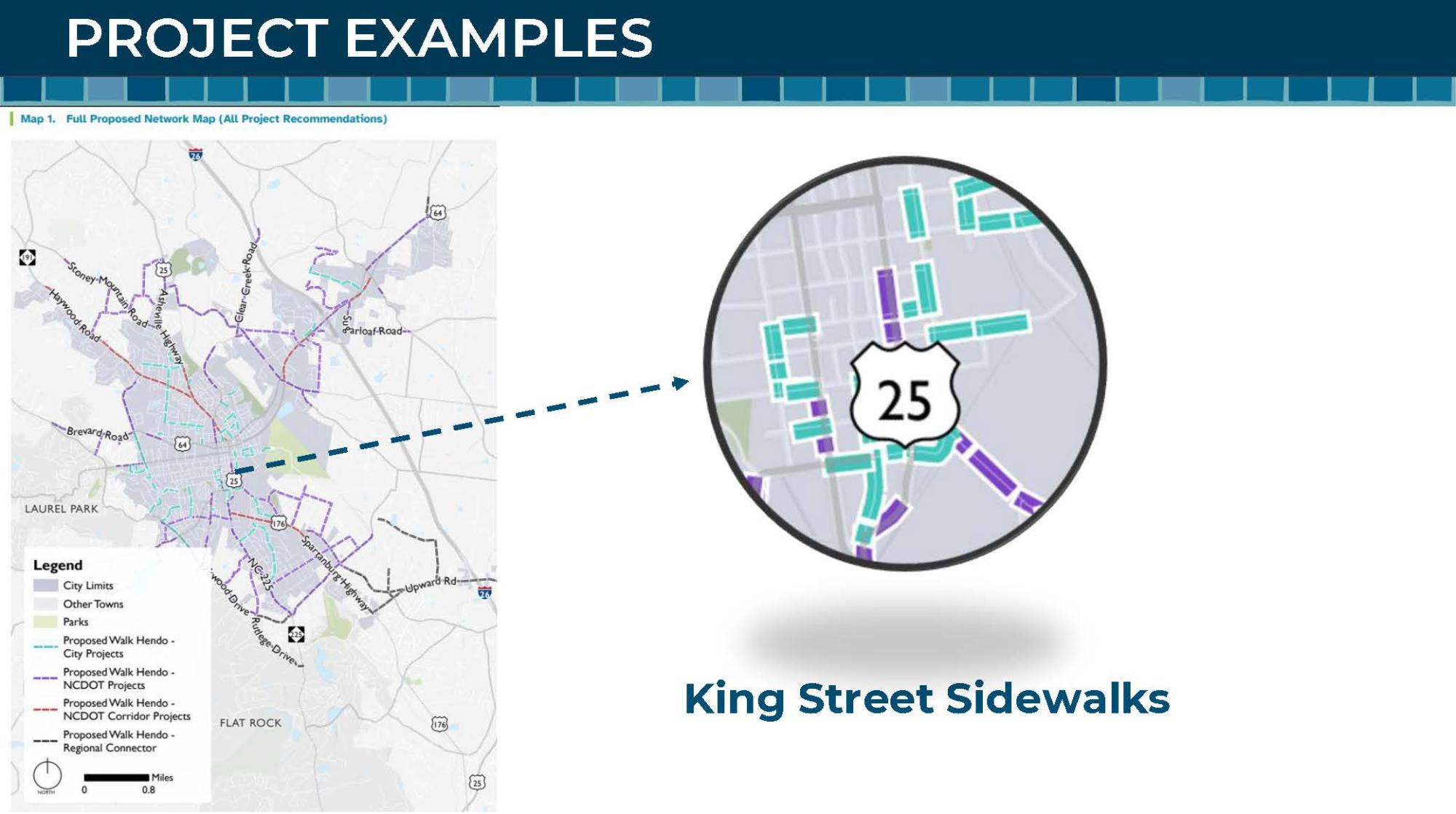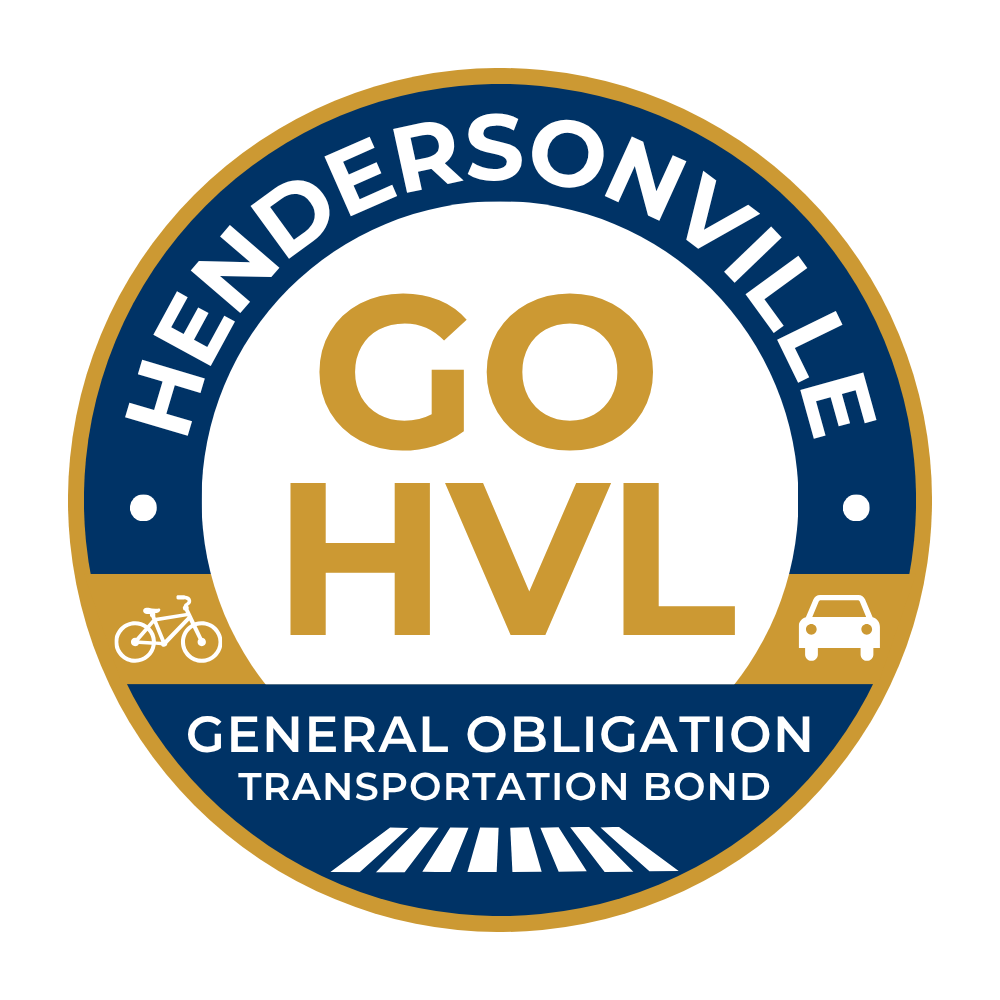GO Bond

The City of Hendersonville is a vibrant mountain community that continues to attract people seeking a high quality of life in a desirable place to live, work, and visit.
Transportation investments are needed to meet the growing demand and maintain safe, accessible infrastructure.
On March 3, 2026, City of Hendersonville voters will consider a transportation bond referendum that would repave streets, improve sidewalk accessibility, and create safer, more connected transportation networks.

What is the purpose of the City’s GO Bond referendum?
To improve pavement conditions, remove ADA barriers, and create safer, more complete streets.
The GO Bond would fund the following transportation projects:
- Street Repaving – Repave City streets with the lowest Pavement Condition Index (PCI) scores.
- Curb Ramp Improvements – Repair or replace curb ramps to improve the safety of crosswalks and ensure they are ADA compliant.
- Create Complete Streets – Improve bicycle and pedestrian safety through projects identified in transportation plans that improve connectivity.
What are General Obligation (GO) bonds?
General Obligation (GO) bonds are a cost-effective financing method used to raise money for capital projects. GO Bonds are considered one of the safest funding tools available to cities because they are the least costly financing option. Because the City has an excellent credit rating, Hendersonville is in a good position to issue debt and benefit from low interest rates.
What is a bond referendum?
A bond referendum is a public vote that authorizes a city to issue bonds to generate revenue for specific projects. With their vote, residents are also deciding whether they are willing to pay increased taxes, if necessary, for the improvements provided by the bond funds.
How does a GO Bond get approved?
The bond will be placed before City of Hendersonville voters on the ballot during the March 3, 2026, primary election. If you are a City of Hendersonville resident who is registered to vote, you can vote on the transportation bond. Register to vote with the Henderson County Board of Elections.
How much will the City borrow in bonds?
If residents vote in favor of the GO Bond in March 2026, the City will have the authority to borrow up to $10 million. This will be supplemented by $900,000 of existing funding each year for five years. The $14.5 million will be dedicated to funding transportation projects.
What projects will the bonds pay for?
Projects are spread across three transportation categories: Repaving streets and improving pavement conditions, fixing curb ramps for better ADA accessibility, and creating safer and more connected streets.
The funds will be allocated in three buckets:
- Repaving ~ $8.3 million
Improves Pavement Condition Index (PCI) to ~79 in five years
Repaves ~2.5m Sq. Ft.
All Segments with PCI scores of fair and below will be repaved. This equates to approximately 24.84 miles, or about 37% of all City-owned streets. View the pavement condition map to see which roads would be repaved. - ADA compliance ~ $2.45 million
Replaces ~25% of Non-compliant Curb Ramps - Complete Streets ~ $3.75 million
$750k per year will be dedicated to Safety & Network Improvements
Examples of connectivity projects include Grove Street Sidewalks, Orleans/9th Avenue School Intersection Improvements, Washington Street Sidewalks, Ecusta Trail intersection at 3rd Avenue/West Lake, King Street Sidewalks, 5th Avenue Bike Improvements, and more.





How are the projects selected?
Projects are selected by scores based on their pavement condition, travel frequency, appearance in a High Injury Network, proximity to schools/parks/transit routes, identification in the Walk Hendo Pedestrian Plan, bicycle plan, and Age-Friendly Action Plan, and other factors.
The core values guiding the City’s Transportation Bond include
- Prioritizing Pavement Condition for Long-Term Value
- Strategic and Transparent Use of Funds
- Timely Delivery with Measurable Impact
- Equal Access and ADA Compliance
- Balanced Investment Across the Network
- Advancing Complete Streets and Walk Hendo Goals
How long will the improvements take?
All projects will be substantially completed within five years; however, the City will have the authority to spend the funds for up to seven years.
What happens if the bond does not pass in March 2026?
If the bond referendum does not pass, the projects are unlikely to move forward in the near future.
Pavement conditions would likely deteriorate due to the lack of adequate funding for repaving and being in compliance with unfunded federal mandates like Public Right of Way Accessibility Guidelines (PROWAG). Curb ramp repairs and replacements would be completed at a slower rate, and the Complete Streets projects would be unlikely to be completed in the near future.
Watch the December 4, 2025 GO Bond Public Hearing for details on potential projects:
Watch the September 24, 2025 GO Bond Presentation to learn more:
